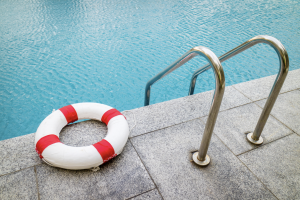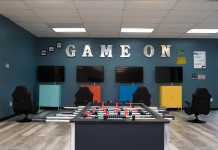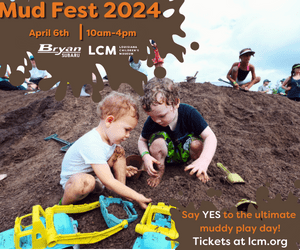 Growing up, my sister and I were always very strong swimmers. We are 22 months apart, so we took the same swimming lessons, went to “stay away” summer camps, and frequently swam at friends and families’ pools. In fact, my sister was such a strong swimmer that our long-time swim instructor encouraged her to become a lifeguard. I was no slouch, myself. She was the best swimmer in every swimming lesson we had, and I was always the second. (But I can save that story for another post- “Sibling Rivalry”)
Growing up, my sister and I were always very strong swimmers. We are 22 months apart, so we took the same swimming lessons, went to “stay away” summer camps, and frequently swam at friends and families’ pools. In fact, my sister was such a strong swimmer that our long-time swim instructor encouraged her to become a lifeguard. I was no slouch, myself. She was the best swimmer in every swimming lesson we had, and I was always the second. (But I can save that story for another post- “Sibling Rivalry”)
Even with all this experience and skill, we very nearly drowned as children. We were at a large, extended family reunion, and there was no lifeguard on duty. I can’t recall precisely how old we were, maybe 9 or 10-12, but certainly no older than 12. That day, we decided to play “piggyback” in the pool, with her on my back as she was always much shorter than me. The pool went from 3 feet to 6 feet very quickly, and it caught me by surprise. I lost my footing. My sister thought that my dunking up and down was still fun and games, so she didn’t realize what was happening until she had lost her bearings, too. My cousins swimming nearby didn’t notice a thing. When I reflect on it, it seems that we were thrashing and struggling for 10 minutes or more, but I’m sure it was much shorter and more subtle than that.
Suddenly, sitting by the pool, a woman whom I do not know but am probably distantly related to, jumped in and saved our lives.
I didn’t think about it for years, really. In fact, if you had asked me as a young adult if I had had a “near-death experience” as a child, I would have said that I hadn’t. That was, until about 10 years ago. I was swimming the backstroke, and some water splashed onto my face. I immediately became very uncomfortable and got a flash of the incident. It gives me chills, sometimes, to think how close both my sister and I were to perishing that day while everyone around thought we were just playing.
It’s tempting to think that the more adults and people that are around the pool while children are swimming, the safer it is, but that’s not necessarily true. More people means more distractions, more chaos, perhaps more of a chance that there’s alcohol involved. I owe my life to the fact that a person I don’t know directed her attention to the pool for a moment – and recognized that we were struggling.
I have seen the excellent suggestion online to either hire a lifeguard for large events or to appoint a “designated watcher,” a sober adult to regularly scan the pool for the often hard to detect signs of struggling.
Some people also take it a little personally when I express concern for pool supervision, as though the safety of my children is of less concern to me than their feelings. It isn’t. Water is something that we should respect and prepare for, even if your child is a strong swimmer, and even if their friends are close by, even though most residential pools don’t go to 6 feet anymore. I know this is something we tend to not think about and say “It’ll never happen to ME,” but it did almost happen to me.
So, create a plan. “Watcher” or lifeguard, put at least one responsible adult or older teenager in charge, and have that person be familiar with the names, ages, and skill level of the swimmers. Prepare for the worst-case scenario, like maybe taking a CPR class. Be mindful around pools, lakes, and the beach this summer.
And, if you jumped into a pool at a large family reunion about 30 years ago and pulled out 2 terrified kids, please leave a comment. I’d love to have the chance to say “Thanks.”
















